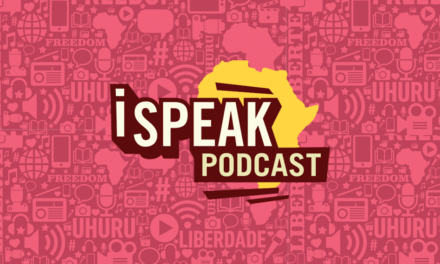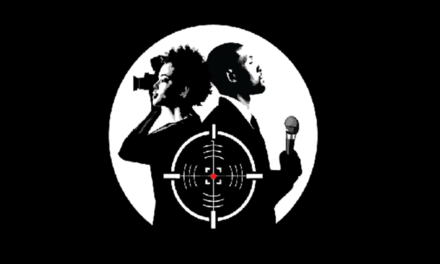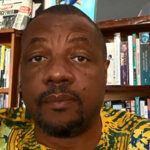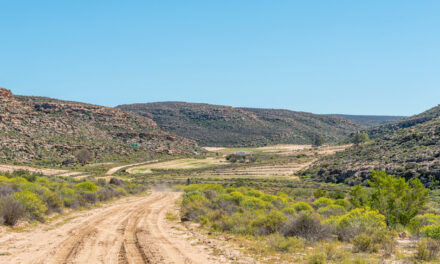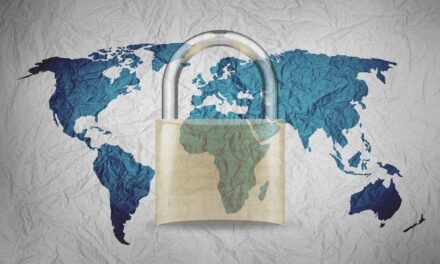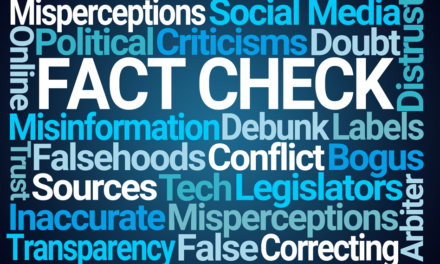
In Zimbabwe, a journalist’s family detained, tortured to bait him
There was just enough time to pick up my laptop and a toiletry bag. I walked briskly, taking footpaths and avoiding the main road leading to my house.Just five minutes later, the phone rang. It was my brother, speaking in a low tone. “They’re here.Nathan had jumped over the two-meter-high perimeter wall as a white 4×4 vehicle pulled up at our gate. The doors were open before the vehicle came to a stop. I had a terrible feeling about it,” he whispered from his hideout. He had observed six (6) men and a woman enter the house.
Inside, my elder sister Nomagugu picked up the story. “They say you must come now Fa, or they will take me,” she said. The menacing visitors, armed with guns, had identified themselves as police officers, but they would not show their badges. They told my sister they had seen me jump over the wall and I had to come back, or they would take her with them as bait.
My sister, her voice trembling with fear, had just done a brave thing. Fa is Nathan’s nickname. She was selling them a dummy. She just wanted me to know they were there; that Nathan had escaped – and more urgently for her she was telling me to keep walking.
By now, my family is accustomed to me getting in the crosshairs of the ruling regime in Zimbabwe, which has ruled the country since independence from British rule in 1980. To them, it’s almost like living with a drug dealer – you always expect a knock from the police, except the only opium the regime wants me to stop is, plying the masses with the truth of their industrial-scale corruption, abuse of office and cyclic election fraud.
Where it all began
In 2001, I was chased down a dirt road in Nyamandlovu, in the province of Matabeleland North, by men carrying axes. I was a junior reporter for The Daily News, then the biggest circulating newspaper in the country, and had answered an SOS by a white ostrich farmer whose land was being invaded by men claiming to be independence war veterans. I was let go after a barrage of kicks, slaps and punches. They also hurt my arm which I carried in a sling for a week.
Less than a year later, I was with two colleagues Eugenia Mauluka and Collin Chiwanza in Wedza, Mashonaland East province, when again – answering a call by another besieged white farmer – we were surrounded by the invaders who beat us blue with a motorbike chain. We were saved by a brave soldier who ordered the brutality to stop, and fired shots in the air to emphasise his seriousness.
I left for university in the United Kingdom shortly after, and was lured back years later to take up a role as editor of The Chronicle, a state-owned publication. It was a brave call by the information minister Jonathan Moyo, who had an ambitious plan to reform state media.
In 2014, just a year after my return, President Robert Mugabe described me and other new editors appointed to head state newspapers “weevils” working within to bring down his government. In the end, I was turfed out after publishing a story highlighting the then Vice President Emmerson Mnangagwa’s role in the 1980s massacres of the minority Ndebeles in southern Zimbabwe.
Mnangagwa is now the president, and the men rummaging inside my house were his agents. They carried a warrant signed by a magistrate which accused me of “organising and advocating for illegal demonstrations against the government of Zimbabwe pencilled for July 31, 2020,” – the next day. The document further said I was “believed to be manufacturing, storing and distributing to members of the public some materials for use during the illegal demonstrations.” It empowered those carrying it to seize my “cellular phones, computers, cameras, offensive or subversive material likely to be used during the illegal demonstration.”
A visiting scene from the past
My 73-year-old aunt who was visiting from our rural home would later tell me that the scene reminded her of Gukurahundi, the 1980s killing of thousands of minority Ndebeles, many of whom were dragged out of their homes as their families watched, forced to dig their own graves and then bayoneted. Mnangagwa headed the intelligence ministry then, whose agents identified targets to be abducted, tortured or killed.
As I trudged on, not sure of my destination, I sent out a tweet: “Police are at my house.” Then I remembered I had a Twitter friend a few streets from my house. I headed there. A knock at the gate and she opened. “I saw the tweet, come in,” she said, saving me the trouble of explaining why I needed refuge.
There was a reason I had left the house with such haste. Earlier that day, Nathan had dispatched three nephews in two vehicles to a hardware shop to buy some materials for our aluminium fabrication business. When they did not return, and were not answering their phones, he got worried and drove into town looking for them. Driving past the main central police station in Bulawayo, he saw two of them – the drivers Amandlenkosi and Advent – talking to men in civilian clothes. A third nephew, Tawanda Muchehiwa, was not part of them. He called me to relay what he was seeing, and I told him then the picture was not good, he had to get away from there and race home.
I had been living in fear of a police raid for weeks after ZimLive, the online newspaper I founded, ran a series of articles exposing multi-million fraud in the procurement of COVID-19 drugs and equipment. At the heart of it was a company called Drax International fronted by a local businessman, Delish Nguwaya. Nguwaya is a known business associate of President Mnangagwa’s twin sons Shaun and Collins. The web also involved the health minister Obadiah Moyo, who was later arrested and then sacked.
The investigation angered the ruling party, which called several press conferences demanding that the media should stop “attacks” on the “first family.”
I was acutely aware that the regime wanted to know our sources who supplied the documents that unravelled the fraud. For this, they would have to cook up a charge which would allow them to enter my home and office with dubious authority to seize my cameras, computers and my phones.
My fears had only heightened in early August, when Hopewell Chin’ono, a journalist who had also reported on the Drax scandal, was arrested and accused of inciting Zimbabweans to stage violent protests against the regime. During a raid on his home in Harare, police broke down a glass door to gain entry. They took away his computers, phone and a video camera.
Torturing my family as bait
While still digesting the drama of the preceding hours, a lawyer who had arrived at the police station called to say he had three members of my family – the two nephews seen by Nathan earlier and my sister, the hostage. “No, they must be four,” I insisted, sending him back to look for my other nephew, Tawanda, a second-year journalism student at a local university.
Tawanda was not there. The police said they had not arrested him. Then, talking to Advent and Amandlenkosi, the lawyer realised something terrible had happened. Almost half-a-dozen vehicles had surrounded the nephews. As the two were bundled into a sedan and driven to the police station, Tawanda was driven away in an Isuzu pick-up truck to an unknown destination.
Barely clinging to life, Tawanda was dumped near a railway line close to our home three days later, but only after a High Court judge had ordered the state to produce him. Doctors who treated him said his kidneys were barely functioning. His buttocks were just but a large open wound, the result of repeated beatings during torture. More than once, they put a gun to his head and told him it was over.
Tawanda’s abductors, who were five (5), wanted to know who finances ZimLive and who was our contact at the British and United States embassies – a preposterous assumption that all criticism of the government is sponsored by western countries.
Eventually, the three family members at the police station were let go after several hours of haggling between the lawyer and police. Tawanda, who spent three weeks in hospital and subsequently two months in rehab, has sought refuge in neighbouring South Africa, abandoning his studies, family and the only life he knew. I spent months living in hiding, emerging only after my lawyer challenged the warrant police used to enter my home based on political lies.
To date, no-one has been arrested for the abduction and torture of Tawanda. Dramatic CCTV footage of his abduction which was later obtained by ZimLive has provided a rare insight into the operations of a shadowy unit of Mnangagwa’s security forces known as the Ferret Team, which rights groups say is behind the abduction and torture of over 70 activists in the last 18 months.
Operating outside the law, and with impunity, the Ferret Team has highlighted a harsh reality for journalists under Mnangagwa’s authoritarian rule. A journalist must choose what they value more: exposing corruption or their family. While I am alive, I choose both.

